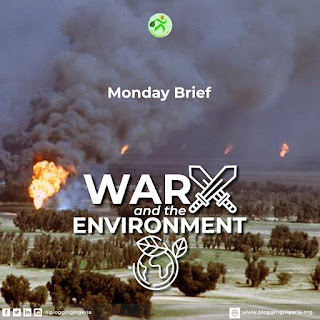The human race has seen a war waged between two or more different nations in the past and is still healing from its widespread life and environmental impact.
War, according to Merriam-Webster, is the state of usually open and declared armed-hostile conflict between states or nations.
Besides the injury it may inflict on lives and the destruction of habitats, it can also lead to psychological and environmental damage.
Warfare can cause a mass evacuation of people from a region owing to the loss and destruction of properties and a lookout for shelter. The resulting impact of such an event can be greatly catastrophic, allowing extensive deforestation, unlawful hunting, soil erosion, and contamination of land and water by human waste. Even in regions not directly affected by warfare, increased production in manufacturing, agriculture, and other industries that support a war effort can wreak havoc on the natural environment.
Long before Jurgen Brauer stated in his book—War and Nature: The Environmental Consequences of War in a Globalized World—that war is not good for the environment, certain ironic twists view peace as "damaging" and get people confused. The ongoing Russia-Ukraine war has seen buildings brought down by bombardments from a military unit of one of the two nations. This action has an enormous environmental impact on us with several activities stopped and people running for their dear lives.
Today, war has become a survival tool for powerful nations, a method of forcefully taking what belongs to another country, a way to show superiority by increasing power and wealth, and above all but not usually published is the underlying economic motive towards sabotaging one and salvaging the other.
Warfare certainly should be steered clear of owing to the impact it can have on individuals and the environment at all costs. Join us this month as we undertake an in-depth journey into how war adversely impacts the planet.
Reference
Brauer, J. (2009). War and nature: The environmental consequences of war in a globalized world. Rowman & Littlefield.
— Dolapo Johnson











.jpeg)






0 Comments